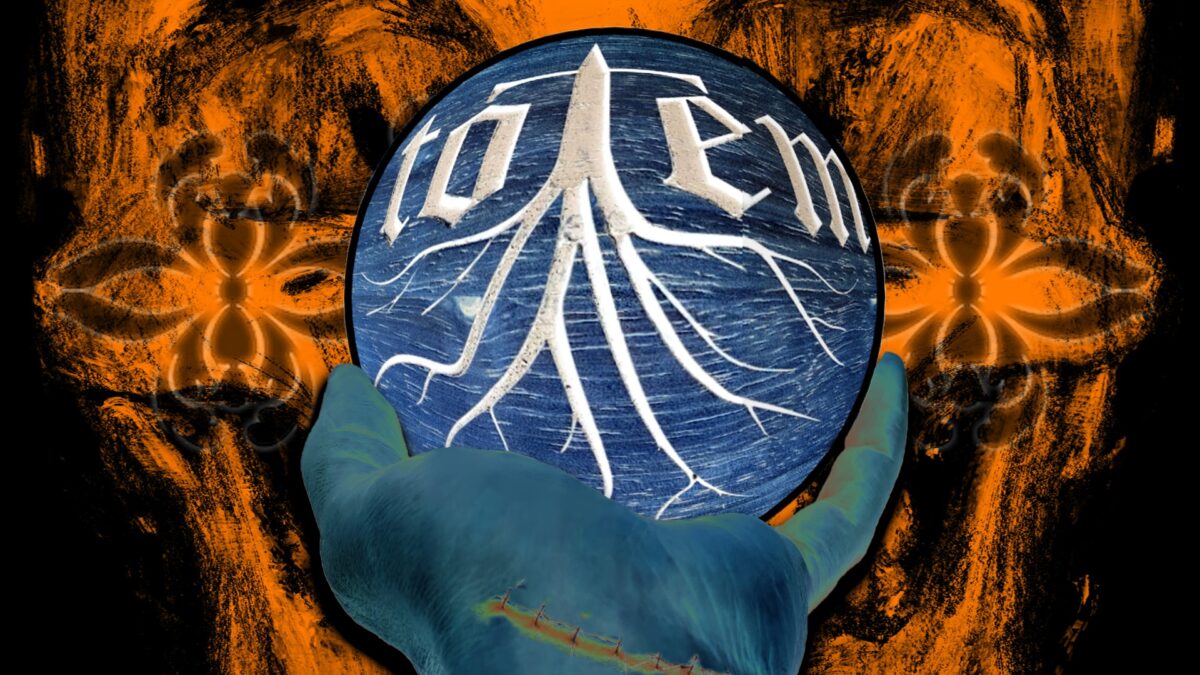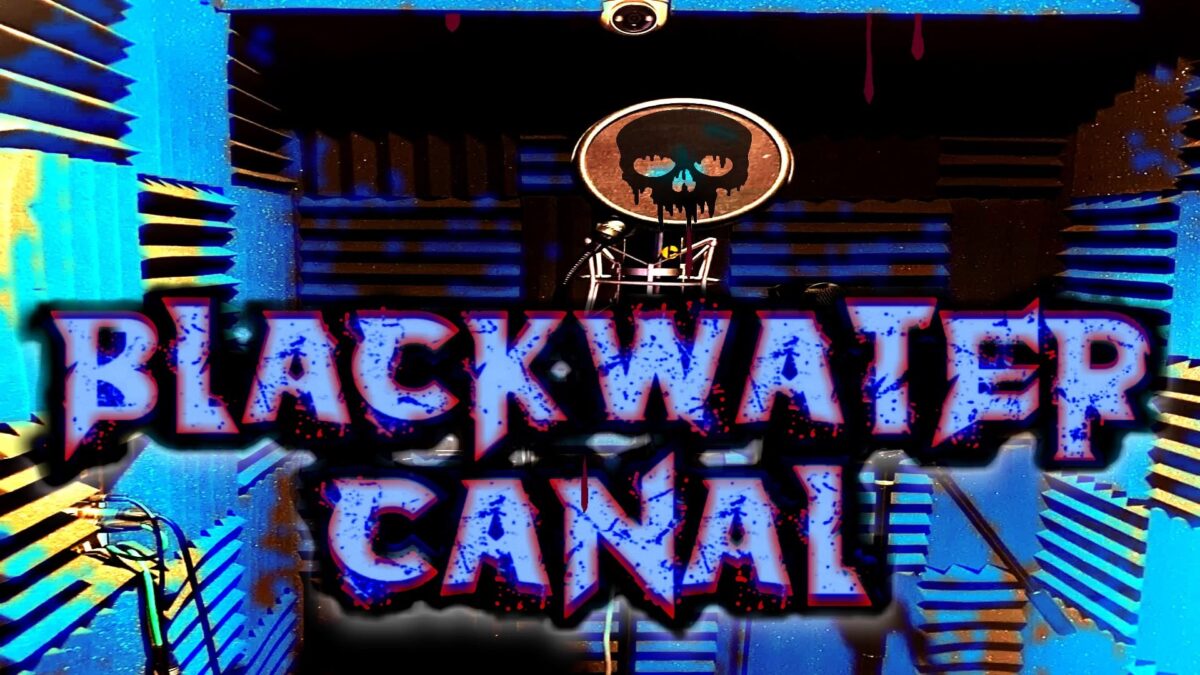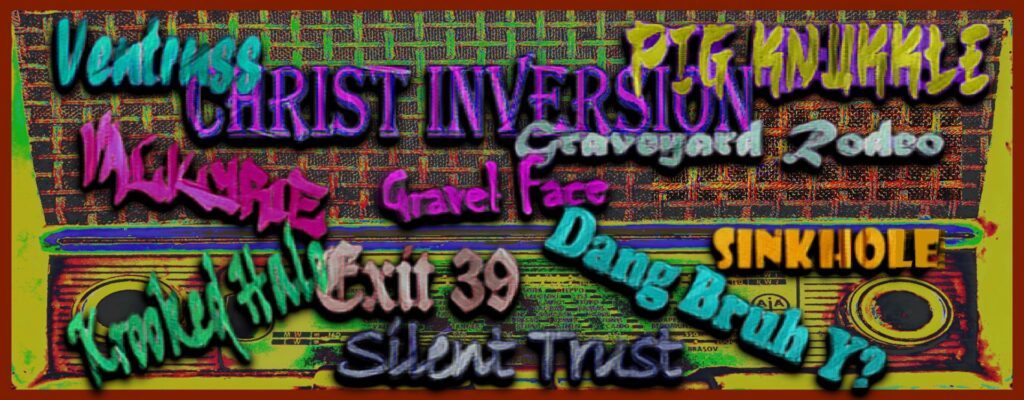For Matt, the Big Bang occurred at the age of eight when he encountered a family member’s extensive music collection. From this single point in time, his melodic universe began with cosmic bodies like Korn, System of a Down, Slipknot, Weezer, and Alice in Chains. Ever expanding, his exploration has landed him in a galaxy filled with sludge, punk, and rock-and-roll. Bass-heavy grooves have charted his path on this journey and, over time, have become the dominant, more prevalent point of recognition for his vessel of worship known as Totem. While music itself was always at the core of his attraction, camaraderie surely enhanced his gravitation. Like many of us that play, we are inexplicably drawn to an instrument at an early age. And suddenly, the arduous task of finding ourselves as human beings is compounded with finding a sense of musical identity. For those of you that don’t play an instrument, I would liken finding one’s musical identity to getting your first apartment. You don’t have much to do it with. Still, you gather everything you have that you think you will need, and some of what expresses who you are, to establish yourself in this “new” life. Only you’re not sure exactly where you want to live, what you want it to look like, or what you can afford. I have always admired true musicians because not only do they face this head-on at a time in life when they are still unsure of themselves. But they do it out in the open, in front of everyone. And I don’t know if you’ve noticed, but the court of public opinion can be bitter.
Unbeknownst to Matt, he was mentally preparing himself for this quest just two years after honestly encountering music for the first time. He found himself doodling band names on his binders while in class. And at thirteen, to some degree, it had manifested itself physically. His hair was spiked and his jeans had chains hanging from them. Soon his friends would be discussing the idea of starting their own band. He knew several guitar players and a drummer. So, he settled upon bass as his contribution to the endeavor. “I think it was like, a Crescent or something. I remember cracking that thing open on Christmas Eve. And it was just a little beginner bass. But man, I wore that thing out.” At that time, Matt knew the cost of a bass guitar. While he gave it a shot, he was almost sure he wouldn’t be lucky enough to get one. But in due time, he would come to know the value. And while he did dabble in rhythm guitar and drums over the years, he always stuck by his bass. Looking back, he affirms the experimentations became useful tools within his narrative. Because of them, if need be, he can pick up or sit behind either and play.
“Getting better at bass… I think that I actually haven’t progressed, like technically speaking, at playing bass. Like, I don’t think I’m an amazing bass player by any means. But I use the bass as kind of a tool to help me write songs. That’s been the struggle of my past ten years, trying to find my place in the New Orleans music scene in general. Being in one band, being in another band, I’ve decided that I’m not going to put my talent up to somebody else anymore. I’m going to spearhead everything. And that’s why our band right now, Totem, is very bass-heavy and very bass-driven.” Modesty would definitely be Matt’s namesake. And his tendency to cite things like tremolos from Steve Harris and other technical players in the field has perhaps contributed to this mental conflict within him. But his niche and true appreciation for the craft lies within getting into a groove and holding things down to propel the song. Pitting one musician’s take on things against another is misleading. But inside the minds of many musicians, this is sometimes an eternal conflict. Doubting one’s self is by its very nature, misleading. And there came a point in time where this combined with being kicked out of a band had Matt stuffing his gear into a closet and shutting the door. He credits his long-time friend and drummer, Gage Breaux, with forcing him to leave the questions behind and return to the things he loved about the art. Their bond and Matt’s second coming further cemented Totem in the rhythmic, bass-lavish landscape that has become their signature sound.
Sparking an alternate creative direction in Totem with a new guitarist, Max Bonnet, has aided Matt in dusting off the difficulties within him. And intentionally not sticking to one particular genre keeps things fresh. As he pointed out, Boris, The Melvins, and Neurosis have always been bands that inspired him in this vein. Max brings with him a penchant for the shoegaze genre. Which should bring about a balancing effect when paired with Totem’s already established driving bass and drum elements. “Max is like refined energy. And he knows how to put the right dynamics on certain strums and he has more technique. He’s got something going on with him. He’s got this shoegaze background. I don’t know, he was obsessed with shoegaze for a while. He’s got some pretty shit that is really going to help us open up a new door to the psyche-rock domain.” In the past, Totem has been a trio where the bass basically commandeered the responsibility normally taken up by the rhythm guitar; keeping pace in the groove and moving things along a plane. Their drummer, Gage, would reinforce this, adding highlights and directing the change-ups. In the future, much of that will remain the same. But this recent addition will accentuate those priorities while also pulling the direction into question. Totem’s recent EP, For What It’s Worth, can be found on Spotify, Apple Music, and Bandcamp. And it will come to be a pivotal sonic example from the band. Because moving forward, a unique dimension via Max Bonnet will emerge. The newly minted trio is in the midst of writing several songs to add to their EP in preparation for their upcoming album. And in true Totem spirit, it will be exploratory, possessing artifacts of both prior artistic endeavors and future direction.





















